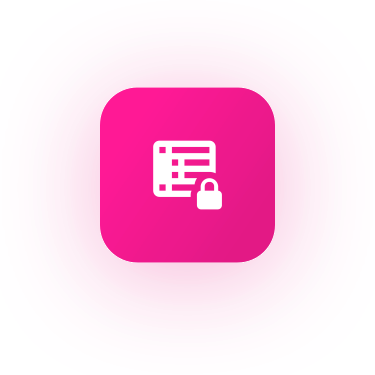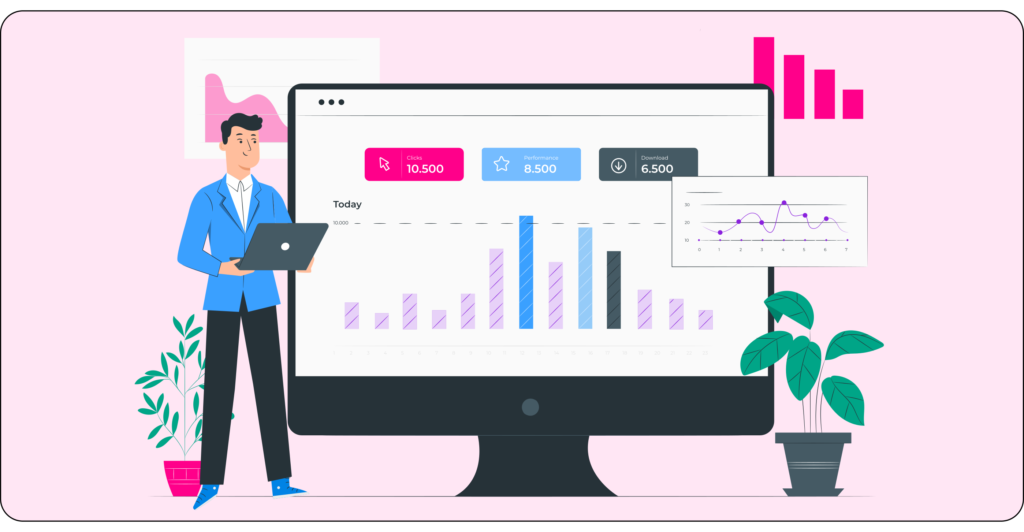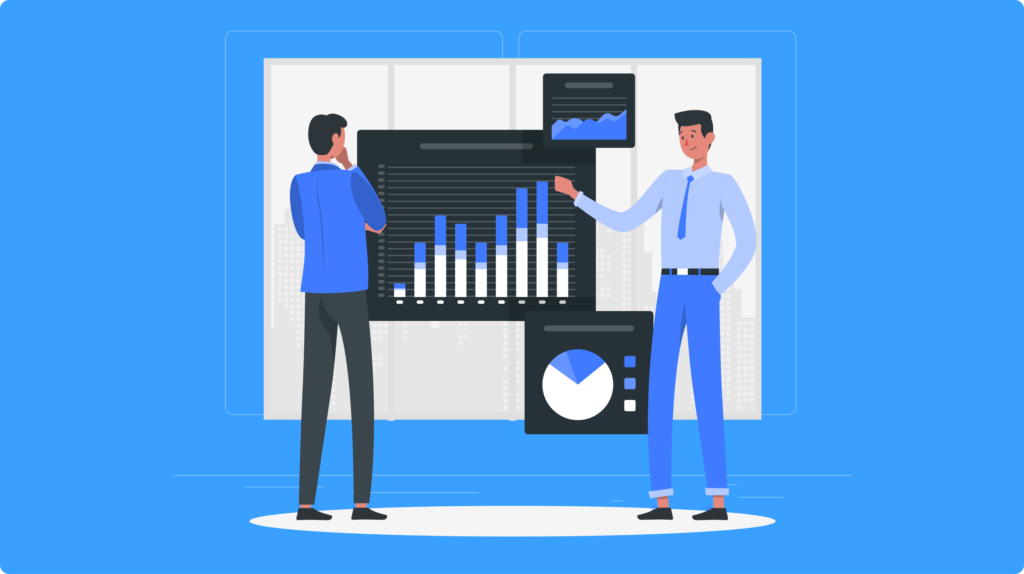Today’s world is driven by data. Organizations rely increasingly on business intelligence tools like Microsoft Power BI to make informed decisions.
However, the volume and sensitivity of data are increasing, as are concerns regarding data governance and compliance with privacy laws. Power BI is an industry-standard data visualization and analytics tool that provides organizations with various features for managing data responsibly.
Still, to fully ensure compliance, organizations must implement a thorough data governance framework tailored to data privacy laws such as the GDPR, CCPA, and HIPAA. In this article, we will explore the critical role of Power BI in data governance, the tools and practices that support compliance, and how Reporting Hub’s solutions can further improve upon these efforts.

Understanding Data Governance in Power BI
What is data governance? It concerns the policies, processes, and technologies organizations implement to ensure data quality, integrity, and security. In this regard, Power BI is a competent and reliable tool for data governance strategies. Proper governance is needed so that organizations can effectively manage who can access data and how long it is shared and retained.
All of these measures are essential for meeting regulatory requirements and maintaining the trust of customers, partners, and stakeholders.

Why Data Governance Matters
Data governance is crucial for compliance and security.
Organizations must control data handling processes well and account for data access and sharing. A strong data governance framework ensures mitigated risks, avoids regulatory penalties, and protects against unwanted data breaches. Privacy laws are constantly evolving, imposing strict rules regarding collecting, storing, and using personal information. Effective data governance is sure to help organizations comply with them.
Key Data Privacy Laws and Regulations
To implement compliant data governance practices, one must understand various data privacy laws.
Here are some essential regulations that affect organizations:

GDPR (General Data Protection Regulation): Enacted by the European Union, GDPR is one of the strictest data privacy laws globally. It mandates how companies must handle the personal data of EU residents, requiring explicit consent, the right to be forgotten, and data portability, among other provisions.

CCPA (California Consumer Privacy Act): The CCPA provides California residents with rights similar to those in the GDPR, including the right to know how their data is collected, used, and shared and the right to request deletion of their data.

HIPAA (Health Insurance Portability and Accountability Act): Focused on the healthcare industry, HIPAA regulates the protection of personal health information (PHI), requiring stringent safeguards to maintain the privacy and security of patient data.

Others: Numerous regulations worldwide, such as Canada’s PIPEDA, Brazil’s LGPD, and China’s PIPL, each with unique requirements, require organizations to keep pace with them to maintain compliance.
Power BI Features that Support Data Governance
Power BI has strong potential to help organizations implement effective data governance policies. It allows businesses to enhance compliance with data privacy laws and reduce the risk of data breaches or misuse.

Row-Level Security (RLS)
Row-level security allows companies to control data visibility by restricting access to specific rows of data based on users’ roles. RLS ensures that users only see data relevant to them, which enhances data privacy. For instance, a manager will have access to all employee data within their department, but an individual employee can only see their information.

Data Classification and Sensitivity Labels
Power BI also allows organizations to label datasets based on their sensitivity. With these labels, administrators will better understand which data is more important to protect. A good example would be a company labeling customer data as “Confidential” or “Highly Sensitive.” These sensitivity labels minimize the risk of unauthorized access to private, sensitive information.

Audit Logs and Activity Monitoring
Power BI also has audit logs. These logs enable businesses to track user activities and detect suspicious behavior. Companies can monitor data access, report generation, and data-sharing activities with these logs. They can potentially help detect misuse and are great for ensuring
compliance. Activity monitoring is of the utmost importance because this practice allows organizations to respond quickly to potential breaches and compliance violations.

Data Masking and Anonymization
This feature anonymizes or hides certain parts of data, enabling the protection of sensitive information. Let’s take your Social Security number as an example. Power BI can show only the last four digits. This anonymization technique allows businesses to use data for analysis while protecting personal information—essential for complying with GDPR and HIPAA regulations.

Data Retention Policies
One of the most important aspects of data governance is data retention policies. With Power BI, it’s much easier for organizations to define how long specific data should be retained and when it should be deleted. Regulations like the GDPR state that data should only be stored as long as necessary, so retention policies can help organizations comply with data minimization requirements.

Best Practices for Data Governance in Power BI
Aside from Power BI’s very strong governance features, let’s examine what practices organizations can follow to improve compliance and ensure secure data handling.

Develop a Data Governance Framework
Frameworks are always a great option, as they can include policies, roles, responsibilities, and procedures in one place. A company should create a framework that aligns with organizational goals and compliance requirements. It should address data collection, usage, storage, and, last but not least, deletion.

Define Access Controls and Permissions
Nobody likes sensitive data breaches, which is why Role-based access control (RBAC) is an essential practice. Organizations should ensure that users can only access the necessary data, no more, no less. To avoid risk, these access permissions should be defined based on job roles and responsibilities.

Establish Clear Data Handling Policies
Aside from job roles, organizations should also define policies for handling data based on its classification. For instance, specify how data is shared, who can access it, and how it should be stored and deleted. Companies should train employees on these policies to ensure data is always handled securely.

Regularly Review and Update Data Policies
As data privacy laws and regulations never stop evolving, organizations should stay informed about all changes and adjust their policies regarding data governance. Regular reviews of data policies should be conducted to ensure the company remains compliant with the latest requirements.

Conduct Privacy Impact Assessments
Privacy impact assessments (PIAs) are crucial for identifying potential privacy risks and the steps needed to mitigate them. By conducting the assessments above, organizations can proactively address privacy concerns and demonstrate compliance with data privacy laws!
The Role of Reporting Hub in Data Governance
for Power BI
For organizations looking to elevate their Power BI data governance efforts, Reporting Hub offers a specialized solution tailored to meet modern data compliance and governance needs.
Reporting Hub allows businesses to transform Power BI content into a SaaS product, enabling secure and scalable distribution of insights.

With Reporting Hub, organizations benefit from unlimited sharing without per-user costs, granular access control, and the ability to create custom-branded portals for delivering Power BI dashboards. These features support organizations in meeting data governance and compliance requirements, allowing them to share insights widely without compromising security or compliance.

 Brian DeLuca
Brian DeLuca